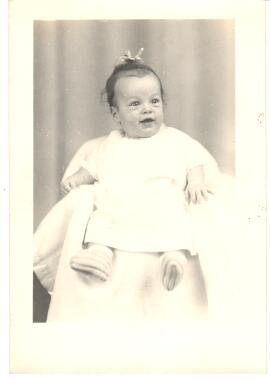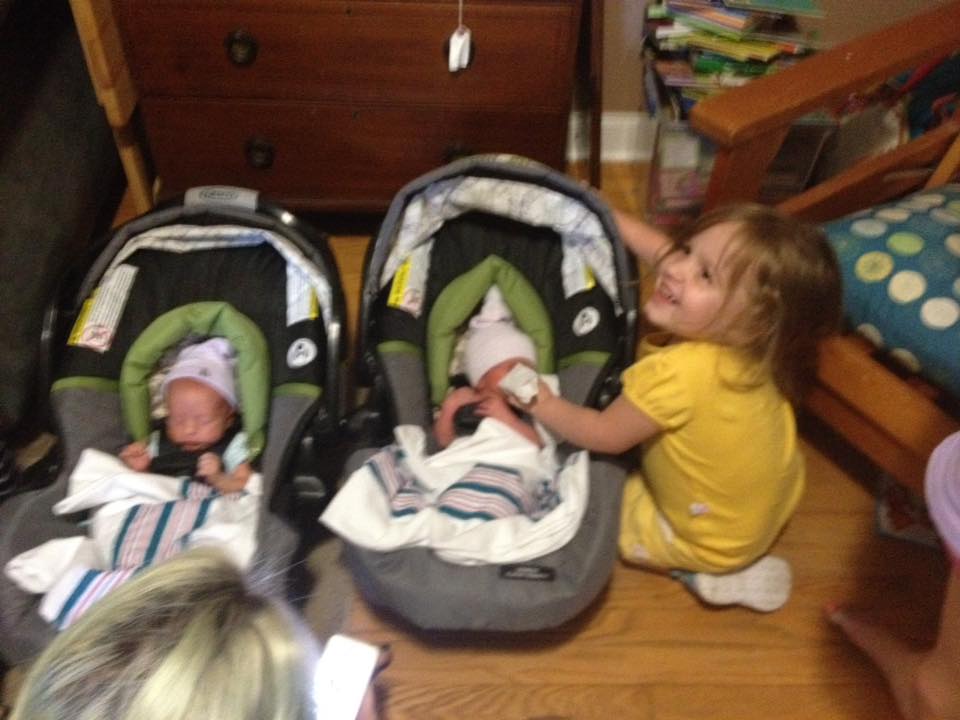This, granted, needs to be severely edited. i wrote it this morning when i woke up way too early thinking of several things to write, and not able to get them out of my head, or more accurately afraid i would not remember them if i did not record them, i got up and recorded them on this terrible enslaving, addicting machine. Then i wrote some more on the plane, and finished it after lunch in the incredibly comfortable home of my friends who live in San Francisco, if not life-long damn near and for eternity, just a few minutes ago. And i wanted my friends to read it. In the rough, before the severe edits.
The old man woke up early this morning and could not quit thinking about how he was an anachronism now, and then the old man wondered why, and then he thought about it some more.
It was this small prism of time, and then it went away. Just like that.
Our country had won the great war. The folks who won it had come through chaotic times to, not only survive, but succeed. Many had seen the previous great war of the world and won that one too.
These folks had relatives who had fought against each other in a senseless war created by hotheads who somehow got others, not only to fight for their cause but to kill their brothers. Both sides. And all of it had so many reasons for happening and so many ways to deal with the outcome, they only managed to outlaw the name of slavery, morphing it into prejudice and hate and abuse and intolerance.
These folks had survived financial chaos and ruin when the financial finagling of greed brought that house of economic cards crashing to the ground.
The folks created this place in this prism of time through which this anachronism sees. His misperception.
These folks brought about great national pride, a sense of invincibility, a sense of rightness, a sense of economic prosperity.
It happened everywhere across the country. In my little slice of that pie in that small prism of time, i came into the world on one side of a small town the middle of a beautiful and very sheltered life. They called it a town, even a city, and it became that city thing eventually, but when i was born and grew up, it was, to paraphrase Sonny Boy Williamson although i’m pretty damn sure Sonny Boy certainly didn’t have Lebanon, Tennessee in mind…or maybe he did, it was too large to be a village and too small to be a town. The people i knew were magic, religious to a fault, friendly – we all went to church, not only on most of Sunday, but on Wednesday, to Vacation Bible School two weeks in the summer, to a revival every night of the week when that circus came to town. The folks there were the older, never to be questioned folks.
i grew up believing what i saw: Our American forefathers of stature were heroes with no flaws. George Washington never told a lie, especially about that chopping down that cherry tree. Benjamin Franklin, John Adams, Thomas Jefferson loved people and believed in total equality. They fought the bad guys. Andrew Jackson was a hero. He too fought the bad guys. Daniel Boone and Davy Crockett killed bears with their knives and when necessary with their bare hands. Kit Carson saved the West. They all fought the bad guys. i knew. i read it all in books.
i believed what i was told: Do unto others as you would have them do unto you. Wash my hands. Red and yellow, black, and white, they are precious in his sight; Jesus loves all the little children of the world. Your body is a temple; don’t smoke or drink or cuss – well, okay: i knew that was what i was supposed to do, but i still wanted to smoke like every man i knew plus Humphrey Bogart did, and i sure wanted to know what was so bad (or good) about alcohol and i took cussing to a new level of art, fitting for a sailor-to-be.
i was to do what i was told. Little children were to be seen and not heard. Brush my teeth. Don’t suck my thumb. Work hard and you will succeed. Save your money and you will become rich. Sticks and stones may break my bones but words will never hurt me.
And we went to the mountains to watch the Indians, the Cherokees dance, and they wore big headdresses of feathers flowing down their backs to their ankles and then we were boy scouts and wearing loin clothes and leather moccasins and dancing in unison hopping on the dirt floor of the main tent at the state fairgrounds. And those Indians for which we did not know there could be another name were the good guys in our cowboy and Indian games: scouts, partners, heroes,
And we played with abandon from when we got up until when we went to bed. Outside. All the time, heat and cold, snow, but not rain. Then we played on the porch, making up games. And we ran all over the neighborhood, almost all over the town. We didn’t feel poor. We went out after breakfast, played until dinner, aka lunch, were back for supper, and in the summer out again to catch fireflies and fight off mosquitoes until bedtime. We fought and were bullied and we learned right makes might, not the other way around; we learned the end does not justify the means; we learned to be honest and not try to get the best of anyone else in money, in games, and in life by cheating; we learned to play by the rules; we learned to obey authority, and because we believed authority played by our rules, we did just that, unless, of course, it was something fun and we didn’t think it would harm anyone; we learned to not show off after we scored, just hand the ball to the official; not to brag; be good sports win or lose. We were taught to be respectful, listen to our elders.
We didn’t lock our doors, car doors, house doors, any doors. We learned to give to the poor, to eat all the food on our plate (which was substantial and fried, not sautéed, with bacon grease and good, oh so good, especially with biscuits and butter. which also would be dessert with sorghum molasses) because the little children were starving in Africa (Yep, my mother really told me that more than once when we had broccoli or Brussel sprouts for supper). We drank milk because it was good for us. Suicide cokes were dangerous.
And we got the chicken pox, measles, the German kind, mumps, but we got to listen to the radio in the downstairs bedroom and “Fibber McGee and Molly,” “The Lone Ranger,” “Tom Mix,” “Gangbusters,” and “The Shadow” visited our bedsides, and we had our tonsils out after being put to sleep with that gross smelling ether, but it was okay even though it hurt when woke up because we had ice cream.
We played on the farms of relatives and milked the cows at first light for fun and ran through the fields and fished in the creeks and hunted with our Red Ryder BB rifles, then later with a .22 and then with the .410 shotgun, and then with the 12-gauge.
We cleaned the house and the windows and the dishes, and stripped and waxed the real wood floors, and cleaned the coal clinkers from the deep recesses of the basement. We mowed the lawn, raked the leaves, clipped the hedges, and early on helped hang out the wash on the clothesline in the backyard. We got spanked, this goofy guy continually, for doing wrong, but we knew it was because they loved us (teachers included) and because we had done wrong.
The boys respected, if not worshipped the girls, putting them on that pedestal, and the girls wore dresses, and we wanted to marry them, and we took them on dates to the movies and put our arms around their shoulders and tried to cop a feel, not knowing or caring or feeling bad about what was driving us to do such a thing. And we gave them our letter sweaters and our friendship ring to wear around their necks, and they ditched us for older guys. You know, the juniors and seniors when we were freshmen. But we loved those girls and began to go out with the younger ones and we would go up on Billy Goat Hill or on the gravel road down by Spring Creek and make out with the moon shining on us and never get very far and the ones that did got into trouble they married and grew up fast. But we always respected them for being women, different, but with a shared experience with us.
Then, we all grew up too fast. We wanted to. Why, i don’t know.
But things started hinting in the back of our minds maybe it wasn’t all that wonderful. We didn’t know the world was not this magical slice of earth, not the place too large to be a village and too large to be a town. because the slice was divided down mostly geographical lines but there were these other folks sharing this place too large to be a village too small to be a town, but we didn’t see them except when they were hired folks or we came across them coming down from the balcony at the movie theater because they weren’t allowed to sit downstairs. But we didn’t think about it…yet.
And all was right with the world…except for the Soviet Union, those damn communists…and what we didn’t know. The Soviets were the bad guys, eager to beat us, and never worrying about what was right to reach their goal of world domination, and they had bombs, big bombs that could blow us up like Nagasaki and Hiroshima, and we were sore afraid, and did drills to hide under those flimsy little desks and run like hell to the mustering spot out in front right after we learned about Jill and whatever his name was and their dog Spot.
And then there was this other thing about these people we never saw in this place too large to be a village too small to be a town because the slice was divided down mostly geographical lines, but they were these other folks sharing this place, but we didn’t see them except when they were hired folks or we came across them coming down from the balcony at the movie theater because they weren’t allowed to sit downstairs. But we didn’t think about it…yet.
They were there on the other side of town out of our mind until we started to grow up and wonder about that song, that children’s song at Bible school: Red and yellow, black and white; they are precious in his sight, Jesus loved all the little children of the world, and then we asked why. There were no good answers, only anger and fear embedded in righteousness expressed as a bad answer.
Then two cousins married two Indians, who never had heard of the words native American, and these men of the Lumbee tribe were good, loyal folks, even fighting in that next little war over there in Korea. And i loved those two guys who married my beautiful cousins and i wondered why we considered them different and why they lived on reservations.
But then it was time to move on, and i dreamed of the big cities, the big stadiums, the big big and starring there in my role of hero. And i dreamed of women loving me and marrying one for life with two kids, a cat, a dog.
And then…it didn’t happen.
The underbelly of this place too large to be a village too small to be a town began to reveal itself and the magical hero did not appear before thousands, but found out he had to work just like his folks told him and even then you could get whacked in the head if you played the game the way you were taught: you had to promote yourself, sell yourself to the highest bidder and then stab the bidder in the back so you could become the bidder and everyone else was the bidder, and you had to stand out, wear something outlandish, grow hair you had to take care of since you were different you had to be vain, and when you scored you had to do an act, a pantomime to show the folks you were cute, better than them, entertaining.
And it was true: this place too large to be a village and too small to be a town had existed for a only a small moment in that prism of time. And i was of it. i was an anachronism. And i had misperceptions. The world i long for really didn’t exist except for a glorious few of us in a prism of time and place non-existent before or after, here or there.
While thinking about it, i thought about what was: war, financial depression, hate, anger, brother against brother, greed and power winning over good sense and caring for others and the right thing to do, sides not caring about anything but their own interests, convinced they knew/know the right way for everyone when they weren’t/aren’t too good at doing what’s right for themselves. Hmm, sounds strangely similar. Oh yes, we’ve made progress. We live longer, we don’t have to do all of that hard word we did before, we eat healthier, we are more watched, monitored, sensitive, and politically correct is now a concern. We keep trying to make everything equal by endorsing the unequal. We know more and are less constructive because we know more. Children don’t play in the yards any more. They don’t have to handle bullies by themselves. They are monitored, coached, tutored to succeed, rather than to live well. Someone is always watching over them…like that is a good thing.
And the anachronism came to this conclusion: we are still okay. There are reasonable people who deal with people as individuals. If others try to take advantage, play the game to win at all costs, be self-centered, the reasonable ones give it up. Ain’t worth it. They know they can manage themselves and love and care and do the right thing because it’s the right thing to do. Been like that for eternity. Check it out.
Still, i would like to go back to that place too large for a village and too small for a town in that prism of time, where all i knew was goodness.
Like i said, an anachronism i am.
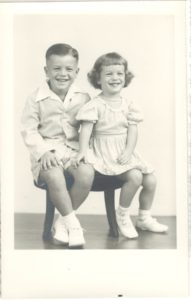
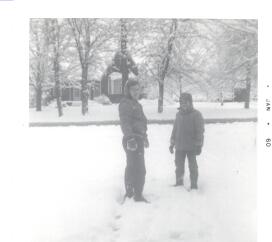 There’s another one of us. He came along later, somehow the smartest of the three of us. She has a great relationship with him as well.
There’s another one of us. He came along later, somehow the smartest of the three of us. She has a great relationship with him as well.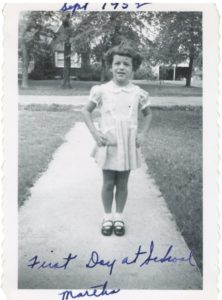 She always has been pretty. She was a marvelous student and teacher: elementary school, piano. Wish i had learned more from her.
She always has been pretty. She was a marvelous student and teacher: elementary school, piano. Wish i had learned more from her.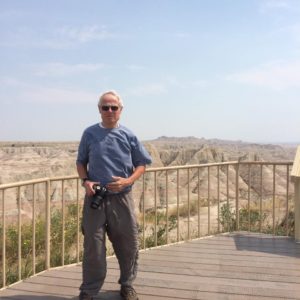 She grew up. Met a man. Good man, great athlete. Even better father and grandfather.
She grew up. Met a man. Good man, great athlete. Even better father and grandfather.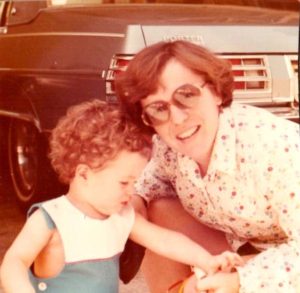 They had a boy. Good man. Good father. Great damn near a brother for my younger daughter:
They had a boy. Good man. Good father. Great damn near a brother for my younger daughter: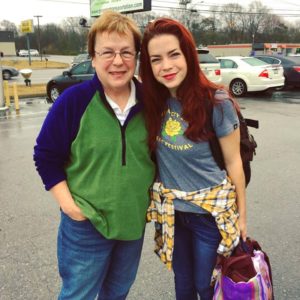 She also, like her son is a brother, a second mother to my daughter.
She also, like her son is a brother, a second mother to my daughter.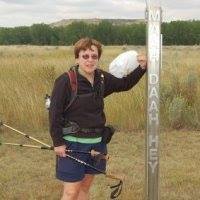 She had some pretty serious health problems, but she is fine now. Even great.
She had some pretty serious health problems, but she is fine now. Even great.